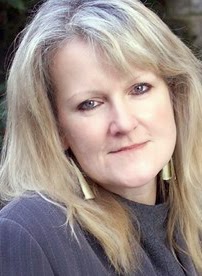Paula Milne
Writer
Paula Milne was born in Beaconsfield, Buckinghamshire in 1947. She cut her professional teeth working on popular dramas such as Coronation Street (Granada/ITV 1960-) and Grange Hill (BBC 1 1978-2008) but she is most well known for creating original dramas including Angels (1975-1983), The Politicians Wife (Channel 4 1995) and Endgame (Day break Pictures/ Film Afrika Worldwide 2009). Her work has won various awards including the George Foster Peabody Award for Endgame and she is one of the few female writers to have a retrospective of their work for television staged at the BFI, Southbank (2012).
In this interview Paula discusses growing up in a single parent family. She recalls her relationship with her twin sister, television executive Claudia Milne, her admiration for her working mother and the influence of her uncle, and later famous film critic, Robin Wood. She recalls leaving school at 15 to pursue a career as a painter and the Art and Film-making course she completed at The Royal College which led to her initial three month scholarship with Associated Television (ATV) as a Script Editor. She recounts being talent spotted by Betty Willingale, her subsequent move to the BBC and the invitation to create Angels. She reflects on working as a State Enrolled Nurse as research for the hospital drama and the desire to employ women writers on the series. She discusses the skills she herself honed during her ‘coal-face’ work on popular dramas such as Coronation Street (Granada 1960-) and Grange Hill (BBC 1978-2008) in the 1970s. She discusses the ways that feminism, gender and class have informed her writing as well as specific ‘turning points’ that have also shaped her 45-year career. Along the way she discusses the craft of writing political dramas such as The Politicians Wife and the processes and strategies she employs as a writer to engage the audience. She delineates the differences of working in film by way of comparison with television and her work on the Television Committee of the Writers Guild of Great Britain.

Interview
This Interview is protected. Please Sign in with your home institution.
How to cite this page
Women’s Work Oral Histories/Oral Histories/Vicky Ball, Women’s Work in British Film and Television, https://learningonscreen.ac.uk/bectu/Oral Histories,Saturday 4th May 2024.
-
WOMEN’S WORK ORAL HISTORY PROJECT
Terms of Use:
By accessing this recording and transcript I confirm that I am a student or staff member at a UK Higher Education Institution or member of Learning on Screen and agree that this material will be used solely for educational, research, scholarly and non-commercial purposes only. I understand that the recordings and transcripts may be reproduced in part for these purposes under the Fair Dealing provisions of the 1988 Copyright, Designs and Patents Act. For the purposes of the Act, the use is subject to the following:
- The work must be used solely to illustrate a point
- The use must not be for commercial purposes
- The use must be fair dealing (meaning that only a limited part of work that is necessary for the research project can be used)
- The use must be accompanied by a sufficient acknowledgement. Guidelines for citation and proper acknowledgement must be followed (click here).
- It is prohibited to use the material for commercial purposes and access is limited exclusively to UK Higher Education staff and students and members of Learning on Screen.
I agree to the above terms of use and that I will not edit, modify or use this material in ways that misrepresent the interviewees’ words, might be defamatory or likely to bring BUFVC, the University of Leeds or my HEI into disrepute.